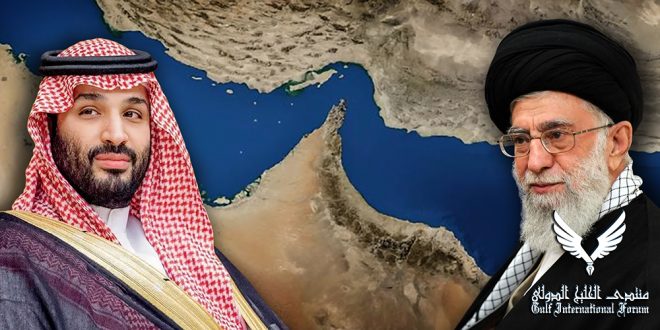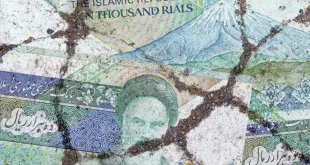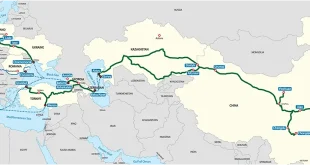As a “neutral” power seeking to distance itself from the Middle East’s various geopolitical rivalries, China has supported reconciliation and peace to stabilize its access to the region’s resources.
The relationship between Iran and Saudi Arabia has been fraught with tension for decades, with each side accusing the other of interference in regional affairs. Nowhere is the divide between Tehran and Riyadh more obvious than the conflict in Yemen, where Saudi Arabia has launched military operations against the Iran-backed Houthi rebels. The Yemeni civil war has spilled into neighboring countries, with the Houthis launching missile and drone attacks against the energy infrastructure of Saudi Arabia and the other Gulf Arab monarchies.
China is becoming an increasingly important player in the Middle East, and its foray into the region could mark an inflection point for Saudi-Iranian relations. China has fostered its economic ties with both nations and is a major importer of oil. Beijing has a vested interest in ensuring that the flow of oil is not disrupted. As such, it is unlikely that China would take sides in any conflict that arises between the two countries. Following successful negotiations held in China, Iran and Saudi Arabia agreed to restore official diplomatic ties. The deal between Iran and Saudi Arabia marks a significant development for the Middle East, as it may signal the end of a long-standing conflict that has left the region war-torn and destabilized.
The normalization of relations between Tehran and Riyadh is in the interest of all countries in the region. The deal could help Iran to develop its relations with other Arab countries, but it will not solve the many problems caused by Iranian foreign policy, nor reverse the country’s economic woes. The most important point that can affect Riyadh’s relations in the future is that Tehran has little incentive to abandon its adventurist regional policies, which have perpetuated the Yemen crisis and sown unrest in Syria and Lebanon. These issues will continue to complicate relations between the two Gulf powers, irrespective of March’s accord.
China’s Footprint Grows
The import of Middle Eastern oil has become increasingly important for China as its economy grows and its domestic energy needs expand. Iran and Saudi Arabia have benefited tremendously from Beijing’s thirst for hydrocarbons; as the world’s largest importer of oil, China leans heavily on the two major Gulf producers to meet its needs. Saudi Arabia has long been one of China’s major suppliers, and Iran is fast catching up, thanks to its significant reserves of oil and lack of other importers. More than 30 percent of Iran’s total foreign trade is claimed by China, and the two countries signed a 25-year comprehensive cooperation document in March 2021 to expand trade and economic ties. In December 2022, they finalized 16 memoranda of understanding on cooperation within the framework of their 25-year strategic agreement. China has promised a 25-year, $400 billion investment in Iran, although U.S. sanctions could limit the scope of its economic engagement with the Iranian regime. While the exporters may enjoy Beijing’s increased demand for oil, China remains vulnerable should any conflict disrupt oil exports. Yet, both Saudi Arabia and Iran are key to energy markets, China lacks alternative suppliers; for the foreseeable future, Beijing will remain reliant on them as it pursues economic growth.
Iran’s primary economic concern is to find new technology and production methods to enhance its oil exploitation, and partnership with China presents the best opportunity for Tehran to realize this goal. Although the technology possessed by Chinese companies is more advanced than that of their Iranian counterparts, it still cannot compete with the know-how of Western companies. Looking at the field development projects in Iran’s neighboring countries, China has not played a significant role in harnessing advanced production technologies for any of their oil fields.
Indeed, China’s emphasis on building economic ties with the Gulf states has cast it as an impartial arbiter and strong alternative to the United States, whose relationship with the Gulf is exemplified by deep security partnerships. The China-brokered deal that reestablished ties between Iran and Saudi Arabia comes at the same time that the United States has criticized China for refusing to condemn Russia’s invasion of Ukraine—a conflict in which the Gulf states have also declined to take sides. In fact, China has consistently railed against NATO and the U.S. itself for forcing Moscow to wage war. Despite this, China is considered by many in the Middle East to be a neutral power. Beijing maintains close ties with both Iran and Saudi Arabia, which grants it significant legitimacy as a mediator between the regional rivals.
International Impact
Regional competition between Iran and Saudi Arabia is seen in many countries across the region. For instance, Iraq has been importing electricity and natural gas from Iran, and is heavily dependent on its neighbor to generate power; it imports much of its gas and electricity from Iran to keep its economy running. While some experts say that over-dependence on Iran’s energy resources could be risky for the Iraqi economy in the long run, this reliance seems unavoidable for the time being. However, in recent years, Riyadh has tried to diminish Tehran’s influence in Iraq by reducing the latter’s reliance on Iranian gas and electricity. Saudi Arabia has offered Baghdad oil and gas and proposed to invest in Iraqi energy infrastructure and oil and natural gas fields so Baghdad may reduce its dependence on Iran’s energy sources by increasing its domestic natural gas production capacity. Yet, Iraq has so far declined Saudi Arabia’s offers due to Iran’s grip on Iraqi domestic politics.
The new agreement could also be an obstacle for possible normalization of relations between Israel and Saudi Arabia—a game changer for relations between Arab countries and the Jewish state. Reports have swirled about Riyadh’s willingness to normalize relations with Israel in return for greater security guarantees from Washington. Israel has been developing close relationships in the region, largely through the 2020 Abraham Accords, which saw Israel establish diplomatic relations with the UAE, Bahrain, Morocco, and Sudan. However, tensions between Israel and Iran have been escalating for years now. Israel fiercely protested the 2015 Joint Comprehensive Plan of Action, has targeted Iranian militias in Syria, and even attacked Iranian military personnel and sites inside Iran. While the Israelis have not disguised their resentment of the agreement between Iran and Saudi Arabia, Tehran is not likely to take favorably to Saudi Arabia’s normalization of relations with Israel if such a development comes to pass.
Following the China-brokered deal, the Gulf region is likely at lower risk of attacks on energy facilities and shipping vessels. While there might be objections to the deal within the Islamic Republic’s halls of power, the agreement will likely guarantee the security of oil shipments. The peace deal even includes a section providing for the removal of oil from the FSO Safer, a stranded oil tanker off the Yemeni coast at dangerous risk of spilling into the vital Bab-el-Mandeb waterway. The safe transfer of the 1.1 million barrels of oil onboard would be the first benefit to arise from the deal.
Russia could also benefit from the deal. Behind the scenes, Russia remains in partnership with OPEC+ despite the sanctions levied against it, and both Iran and Saudi Arabia want to maintain close ties with Russia in energy, trade, and other sectors. In the near term, increased demand from China looks likely to drive up oil prices further, something Iran is desperate to make it happen due to its limited export capacity. Increases of oil prices and demand will be best achieved if Iran keeps its proxies away from Saudi Arabia and the major oil routes that crisscross the region. This appears to be the new state of balance in the region, although it is still somewhat precarious for the Saudis.
The recent agreement between Iran and Saudi Arabia was welcomed by Iranian media, although it remains true that normalizing relations should not be presented as an end in itself; the simple act of reopening embassies and exchanging pleasantries will not solve Iran’s economic problems. Ultimately, Iran must revive the nuclear deal to make the most of its newfound diplomatic ties. The most important aspect of this month’s deal, however, is to reduce the level of tension and establish the stability and security of critical facilities and energy sources. If such security is established, the ground will be set for commercial, industrial, cultural, sporting cooperation. The first step in this direction is the implementation of a “security agreement” to pave the way for other cooperation and understanding. After the recent agreement and the possible revival of the JCPOA in the future, it is unlikely that Iran will be able to become a competitor of Saudi Arabia in the oil market. The secret of Saudi Arabia’s success in the energy industry over the past 50 years has been the non-interference of politics in the management of the oil industry and the Kingdom’s support for R&D. In Saudi Arabia, these practices will continue; in Iran, they have never gained traction, meaning that lower output and corruption are expected to continue.





